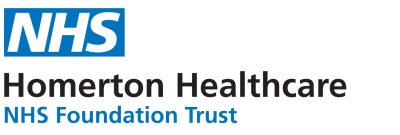You are accessing this website using a legacy browser. You may find that certain parts of the new GP Website do not work as expected. We recommend upgrading your browser to continue.
If you are based within a GP practice please contact the GPIT Helpdesk on 020 3816 3258 or email nelondonicb.cahpractitioners@nhs.net to carry out the upgrade
The City and Hackney Mobile diagnostic hub will deliver quality assured respiratory diagnostic tests such as spirometry and FeNO at multiple sites across the Borough to both adults and children with a suspected chronic respiratory disease.
The phased roll out of the Diagnostic Hub has started, we are currently delivering clinics in two PCNs, with the long-term plan to provide one clinic per Primary Care Network per fortnight depending on site suitability, as well as the running of ad hoc clinics outside of these times as required.
Please start to refer to the service (information on how to do this is below), we are accepting referrals from every PCN, however please bare in mind, there may be a wait for an appointment.
Purpose of the Respiratory Diagnostic Hub
The service is intended to provide quality assured Spirometry and FeNO (as appropriate) to enable the diagnosis of COPD or asthma. The Hubs are for people with a suspected diagnosis of COPD or asthma in the first instance to clear backlogs and then will follow the prioritisation system as outlined below. The Hubs are not for any monitoring of lung function.
Currently, the service is expected to provide testing and interpretation of Spirometry/FeNO results. A discharge summary will be received by referrers following the appointment and GPs will be expected to make a diagnosis in conjunction with the clinical history. GPs will also be expected to refer on any questionable diagnosis/unclear diagnosis for specialist input.
At time of spirometry/FeNO appointment
CXR within the last 6 months or one booked along with this referral
**CXR in the last 6 months is recommended to support a confirmed diagnosis. If a CXR is booked, diagnostic Hub appointment can go ahead prior to CXR (not applicable for paediatric referrals)
At time of spirometry/FeNO appointment:
Patients not suitable for Diagnostic Hub and who should be referred elsewhere:
The following clinicians can refer to this service: GPs
Referral methods: e-Referrals
For now, referrals will be made by email.
Please send referrals using the attached referral form to the huh-tr.acersdiagnostichub@nhs.net
Appointments:
Patients will receive their appointments via the post. If they are unable to attend, they should contact the team on the details below for the appointment to be rescheduled.
Patients will also receive a text message or phone call confirming their appointment closer to the date and time of the appointment.
If a patient is unable to attend on the day, they should call the service to alert them to this.
Referral Prioritisation
Due to the significant backlog, a prioritisation stratification in line with the ARTP stratification guidance and agreed by the steering group and Primary Care will focus on patients deemed to the highest priority. This includes:
Highest Priority patients
Once the service has reduced the backlog of patients waiting for quality assured spirometry from the highest priority group, the service will concentrate on people from lower priority groups, which includes:
The service will not undertake or accept referrals for:
Respiratory Diagnostic Hubs Process
To support referral and prioritisation to the Respiratory Diagnostic Hub CEG have outlined possible searches that could be undertaken by each practice if you have not maintained a list of patients awaiting diagnostic spirometry:
CEG have created a suite of searches to help practices prioritise patient recall. Practices will be able to identify 3 cohorts to review and prioritise for spirometry with cohort 1 being patients with highest priority followed by cohort 2 as detailed below.:
Please copy Spirometry Support v1 over to your practice domains. These searches can be found in folder 3. PCN Contracts within the main Practice Support folder.
It is important to note that the aim of the CEG searches is to create a list of patients who may need respiratory diagnostic testing but the list will still need scrutiny to determine if priority for spirometry/FENO, and not send all of the patients through to the service at once.

Last updated: Sep 24th, 2024
Review date: Mar 25th, 2026
When you attend an event booked through the North East London ICB (City & Hackney) GP Website, we'll add the event details to your CPD section automatically.
This is an external link. Continuing will take you away from the North East London ICB (City & Hackney) GP Website. Please be aware that some external resources may be restricted to NHS Secure Network connections only.
ContinueReport a problem or suggestion using this facility. When describing your problem or suggestion, be as descriptive as possible and include any specific error messages you may see.
This website is for healthcare professionals only. It is not intended for public use.
Continue